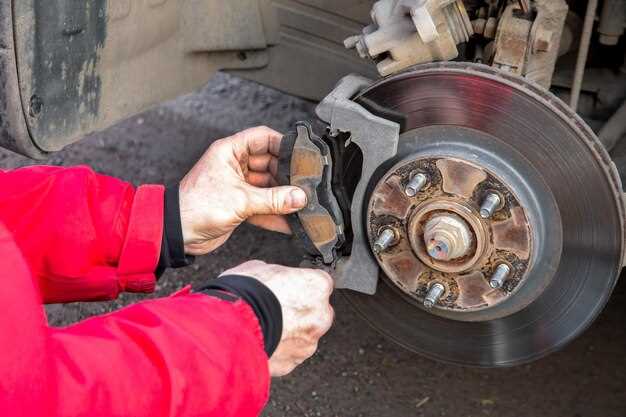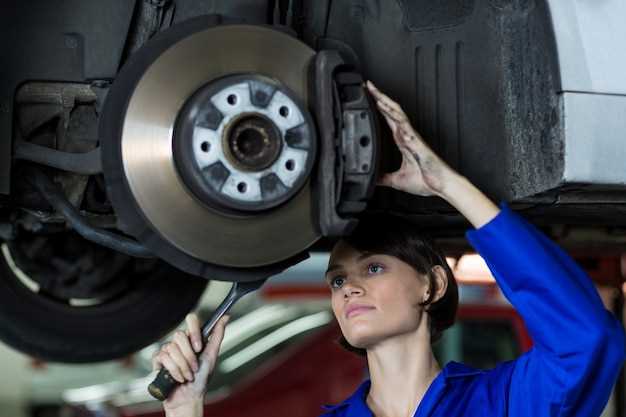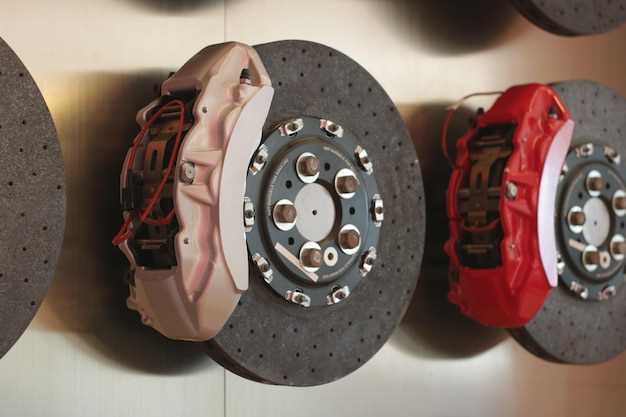

Brakes are one of the most critical components of any vehicle, ensuring safety and control while driving. However, they can develop issues over time, leading to performance problems that may compromise your safety on the road. This article aims to highlight common brake problems and provide you with simple solutions to address them effectively.
One frequent issue drivers face is squeaky brakes. This annoying sound often indicates wear and tear or insufficient lubrication. Understanding why this occurs can help you pinpoint the necessary repairs or maintenance. With our expert tips, you can learn how to diagnose this issue and take corrective measures before it escalates.
In addition to squeaks, brakes can experience various other problems, such as reduced responsiveness or grinding noises. Addressing these issues promptly is essential to ensure your vehicle’s optimal performance. By following the simple solutions we outline, you can maintain your brakes in top condition and avoid costly repairs down the line.
Identifying Causes of Squeaky Brakes
Squeaky brakes can be an annoying problem for drivers, but they also signal underlying issues that need attention. Identifying the root cause is essential for effective repair and ensuring safe vehicle operation. Here are some common causes of squeaky brakes and tips for addressing them.
One of the primary reasons for squeaky brakes is worn brake pads. When the friction material on the pads gets too thin, a metal indicator may contact the rotor, producing a high-pitched squeal. To prevent this, regularly inspect your brake pads and replace them when they show signs of wear.
Dirt and debris can also lead to brake noise. If dust, mud, or grime accumulates on the brake components, it can create friction and cause squeaking. Periodic cleaning of the brake system will help keep it clear of contaminants. Use compressed air or a specialized brake cleaner for this purpose.
Improper installation can result in various issues, including squeaky brakes. If the pads or rotors were not fitted correctly, they may not align properly, leading to unintended noise. If you’ve recently had brake repairs performed, ensure that the installation was completed by a qualified technician.
Moisture can be another factor contributing to brake noise. During rainy or humid conditions, rust may form on the surface of the rotors, which can create a squeaking sound when the brakes are applied. Once the brakes are used, the noise usually disappears as the rust wears off. If it persists, consider having the rotors inspected for deeper issues.
Lastly, consider the type of brake pads being used. Some low-quality pads or ones designed for performance may be more prone to squeaking. Investing in high-quality pads can reduce noise and improve overall braking performance. Regular maintenance and inspections will also help identify any issues before they escalate into more significant repair needs.
Step-by-Step Guide to Brake Maintenance

Maintaining your brakes is essential for safe driving. Regular inspections and repairs can prevent serious accidents and costly repairs. Follow this step-by-step guide to ensure your brakes are always in top condition.
-
Inspect Your Brake Pads:
- Check the thickness of the brake pads.
- Measure at several points to ensure even wear.
- Replace pads if they are less than 3mm thick.
-
Check Brake Rotors:
- Examine the surface of the rotors for grooves or scoring.
- Look for signs of rust or warping.
- Resurface or replace rotors if they show significant wear.
-
Examine Brake Fluid:
- Check the brake fluid level in the reservoir.
- Ensure fluid is clear and free from debris.
- Change the fluid every 2 years to prevent moisture buildup.
-
Inspect Brake Lines:
- Look for cracks or leaks in the brake lines.
- Make sure all connections are tight and secure.
- Replace damaged lines immediately to maintain brake integrity.
-
Listen for Noises:
- Pay attention to any grinding or squeaking sounds when braking.
- Investigate noises as they often indicate worn components.
- Address issues promptly to avoid further damage.
-
Test Braking Performance:
- Take your vehicle for a short drive to assess brake responsiveness.
- Check for vibrations or pulling to one side when braking.
- Consult a professional if you notice any unusual behavior.
By following these maintenance tips, you can ensure that your brakes are functioning properly, enhancing your safety while driving. Regular upkeep will not only extend the life of your brake system but also provide peace of mind on the road.
When to Seek Professional Help for Brake Issues

Your vehicle’s braking system is crucial for safety, and recognizing when to seek professional help is vital. If you notice any unusual symptoms, it’s better to err on the side of caution. Here are some tips to help identify when a professional repair is necessary.
One of the most common signs you may need expert assistance is a persistent squeaky sound when braking. While occasional noise can be normal, a continuous squeak often indicates worn brake pads or issues with the rotor. Ignoring this could lead to more significant damage and increased repair costs.
Another essential alert is a decrease in braking efficiency. If your brakes require more pressure to engage or feel spongy when pressed, it’s a clear signal that something isn’t right. This could be due to air in the brake lines or a malfunctioning master cylinder, both of which require professional diagnosis and repair.
Vibrations during braking can suggest warped brake rotors or other alignment issues. A trained technician can assess the situation accurately, ensuring your brakes function correctly. Furthermore, if you experience any warning lights on your dashboard related to the braking system, do not disregard them. These indicators often suggest deeper problems requiring professional intervention.
Finally, if you’ve recently noticed fluid leaks beneath your vehicle, particularly near the wheels, it’s crucial to seek help. Brake fluid leaks can lead to a complete loss of braking capability, posing serious safety risks. Addressing these issues promptly with a professional can prevent accidents and ensure your vehicle remains roadworthy.







